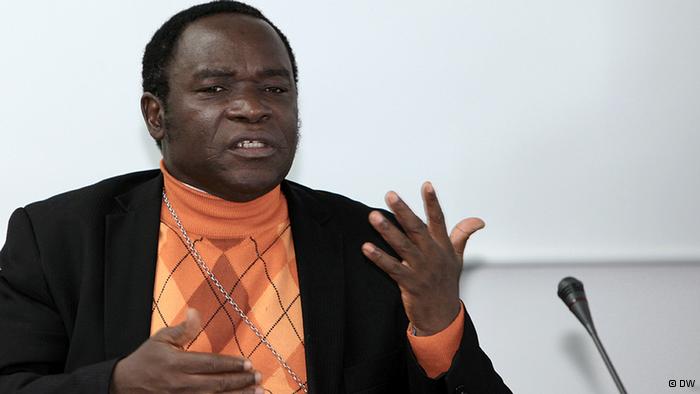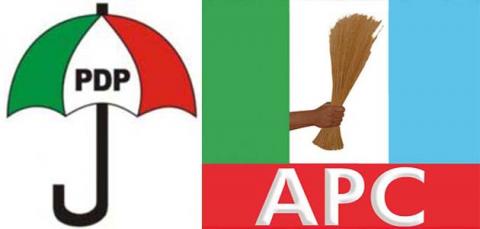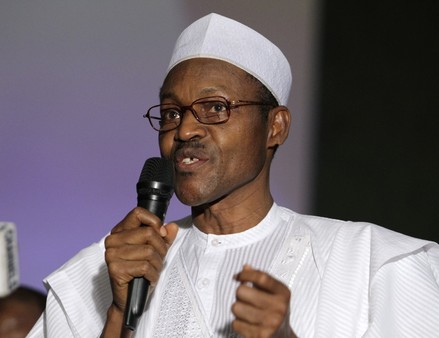In the midst of all the altercation and even violence preceding the February 2015 general elections, it is reassuring that there are top politicians who believe that politics is a sport and its practitioners must behave like sportsmen. This means that politicians recognize that all of them cannot win elections at the same time. After all, not all participants in the Olympic Games return home with medals. Sometimes you win and sometimes you lose. The late South African legend, Nelson Mandela, once solemnly asked a top Nigerian diplomat in Pretoria why elections in Nigeria had all the features of a war, namely, physical violence, deaths, crude propaganda, hatred, mass migration of citizens, etc. The diplomat was, for once, short of words.
Against this background, the nation appreciates the recent meeting between Governor Babatunde Fashola of Lagos State and Chief Chekwas Okorie, the founder of the All Progressives Grand Alliance (APGA) and its first national chairman who is now leading the United Progressive Party (UPP) following his ouster from APGA which was planned and executed by the duo of Chief Victor Umeh and ex-governor Peter Obi of Anambra State who has ironically left the party for the ruling Peoples Democratic Party (PDP) in search of greener pasture . According to various media reports, Chief Okorie was in Lagos to address the large Igbo community in the state with regard to the forthcoming general elections. Though two of them belong to different political parties, Okorie felt it was appropriate to pay a courtesy call on the governor. Fashola quickly accepted to meet the UPP chieftain. And they both met on Monday, November 24, at the governor’s office.
The meeting was most civil. Though the UPP leader made it clear that, though the headquarters of his party is in Abuja, it is primarily an Igbo party. It had long decided to zone its presidential flag-bearer to the Igbo-speaking community, just the way he did in 2003 and 2007 when he was the APGA national chairman at the party’s inception. Okorie informed Fashola that since the ruling PDP had already chosen Dr Goodluck Jonathan, who is from the south-south, as the presidential candidate, and the main opposition party, All Progressives Congress (APC), was most likely to field a northerner in the presidential race, it was only appropriate that the UPP looked eastwards for its own candidate, so as to balance the geopolitical equation in Nigeria.
The Okorie argument is reminiscent of what the Great Zik of Africa did in the late 1970s when the then ruling military government of General Olusegun Obasanjo lifted the ban on party politics. The biggest political party, National Party of Nigeria (NPN), said it was zoning its presidential candidate to the north while the Unity Party of Nigeria (UPN) had decided that its chairman, Chief Obafemi Awolowo, would fly its presidential flag. In the Nigeria Peoples Party (NPP), there was a fierce fight between those who wanted Alhaji Waziri Ibrahim from Borno State to be its presidential candidate and those who wanted another person. The People’s Redemption Party (PRP) had decided on Malam Aminu Kano as its presidential flag-bearer. Interestingly, all the parties had announced that their running mates would be Igbo. This was eight years after the civil war, so no Igbo had the courage to run for president.
It was against this background that Dr Nnamdi Azikiwe, who had earlier announced his retirement from politics, had a change of mind and sought the presidential ticket of the NPP, with the support of his great old allies like Chief Adeniran Ogunsanya, Chief Olu Akinfosile, Chief Michael Ogun and Chief Matthew Mbu. The Great Zik knew very well that he was not going to win, as he did not have time to campaign in a number of states. His involvement in the race derived from the fact that he was the only Nigerian of Igbo extraction who could easily obtain the presidential ticket of a major party because of his stature. Therefore, his participation was to give his Igbo people who led in the struggle for Nigeria’s independence but lost the Biafran war a sense of “uplift from psychological defeatism to psychological glorification”, as the late prominent politician, Dr K. O. Mbadiwe, would put it.
Chief Okorie’s UPP is out to end the second-fiddle status some Igbo want to play in Nigerian politics following Biafra’s loss. In doing it, Okorie does not fail to acknowledge those who have chosen to work with the Igbo as equal members of the Nigerian family. Fashola easily stands out in this respect. For instance, Ben Akabueze, the commissioner for planning and development, is the oldest member of the Lagos State cabinet and one of the most productive and powerful. When, in July 2013, a market in Apapa dominated almost 100 per cent by the Igbo got burnt, Fashola decided to reconstruct it immediately with Lagos State government resources (ironically, no southeast governor visited the victims or even called them on the phone to express sympathy). That Ngozi Nwosu from Imo State, a famous artiste with debilitating diseases, is strong today is due to Fashola. There are so many other instances like naming one of the biggest housing estates in the state after Emeka Anyaoku, just the way he named the commentary box of Teslim Balogun Stadium after the inimitable Ernest Okonkwo.
The most recent is his powerful gesture to First Consultants Hospital which last July became the theatre of the Ebola virus in Nigeria. Fashola visited the hospital with a large number of his top aides to assure the public that the famous hospital had become free of the virus; its employees, equipment and sanitary facilities were de-contaminated under the World Health Organisation’s supervision. The governor was to invite the Ebola victims to his residence, with many government officials present. He later donated N75m to both the victims, mostly Igbo, and the hospital built by Dr Benjamin Ohiaeri, an internationally recognized gynaecologist from Imo State. Regrettably, as you are reading this short article, no Igbo governor, including Theodore Orji of Abia State who is the chairman of the Conference of Southeast Governors, has visited the hospital or sent a word of sympathy to the victims. The same thing goes for Ohaneze Ndigbo and even Ndigbo Lagos led by Professor Anya O. Anya. Perhaps, the worst culprit is Prof. Christian Onyebuchi Chukwu, then the minister of health, who refused to go to the hospital or meet the victims. He was given over N2billion to manage the Ebola crisis, and not one kobo got to First Consultants. There is no record that Prof. Chukwu ever acknowledged the heroic effort of First Consultants and its staff to contain the extremely dangerous Ebola outbreak in the country, for which Nigeria has since been receiving accolades from across the globe.
Chief Chekwas Okorie is following in the footsteps of Dr Azikiwe in identifying, articulating and espousing Igbo interests in a far-sighted manner. Like Zik, Chief Okorie recognizes that Igbo interests are best served when we make friends with as many people as possible and work with them harmoniously in the bigger Nigerian family. Every leader is duty-bound to create goodwill and social capital for his people. This contrasts sharply with the culture of paranoia or siege mentality which ex-governor Peter Obi created in APGA in the name of working for Ndigbo, only to abandon ship in search of higher personal fulfilment. The Igbo now know their true leaders as opposed to transactional leaders who are often crafty manipulators of sentiments and fears.
— By Dr Ifeanyi Ogunjiofor, a medical consultant in Awka, Anambra State.













